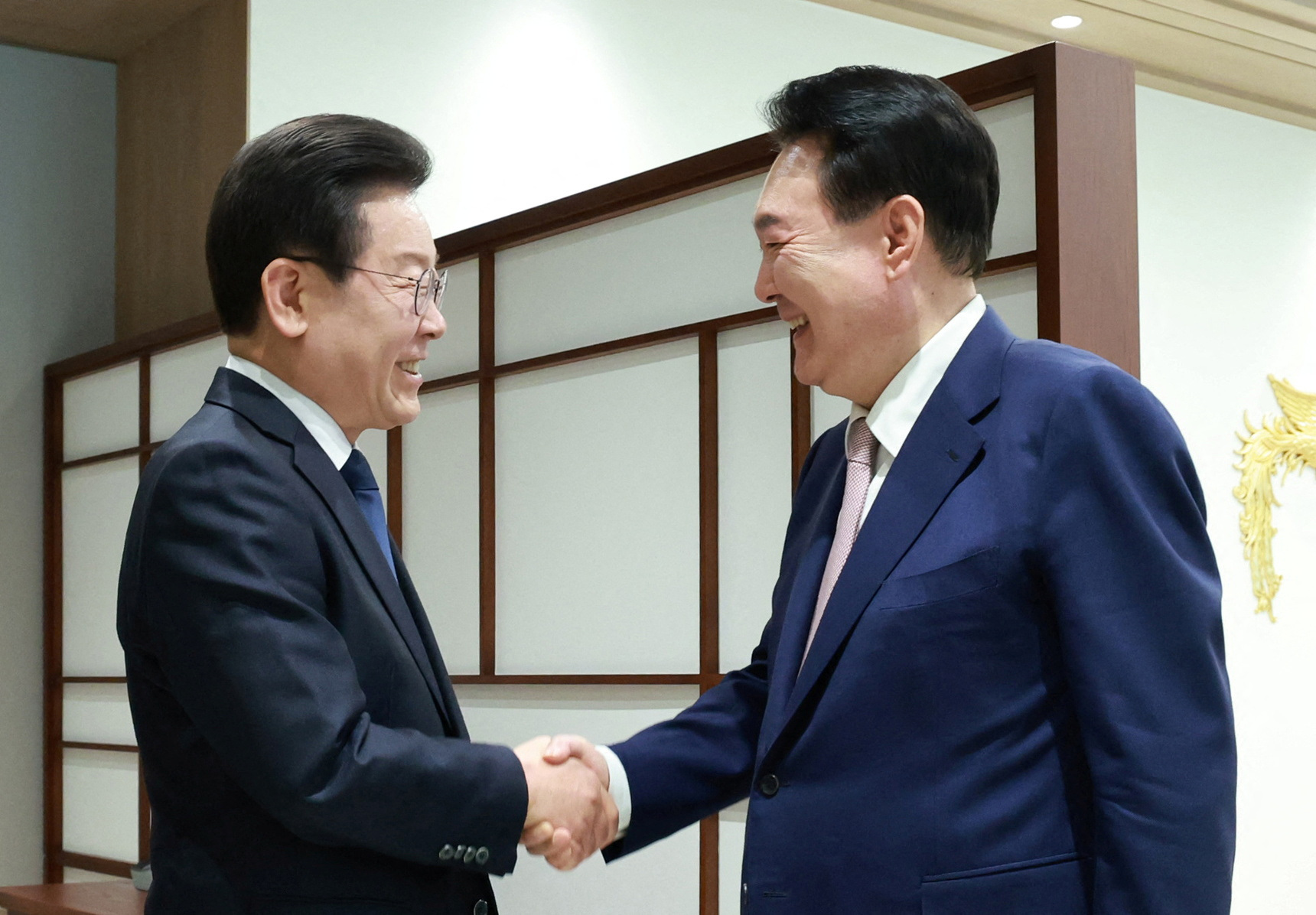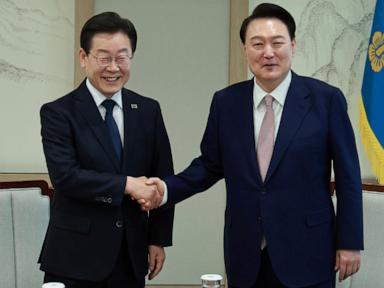South Korean President Yoon Suk Yeol engaged in a crucial discussion with liberal opposition leader Lee Jae-myung to explore avenues for bipartisan cooperation. This meeting marked their first interaction since Yoon’s victory in the closely contested 2022 presidential election. Throughout their campaigns, both leaders and their respective factions engaged in contentious exchanges, including legal disputes.
Yoon initiated the meeting amidst mounting pressure to collaborate with Lee’s Democratic Party, whose recent triumph in the April 10 parliamentary elections solidified its dominance in the National Assembly until the conclusion of Yoon’s term in 2027. The encounter lacked a predetermined agenda, with emphasis placed on enhancing public welfare and fostering collaboration on governmental matters.

South Korean President and Opposition Leader Meet to Work Together After Election (Credits: Reuters)
The agenda is also expected to encompass discussions regarding the resolution of protracted strikes by junior doctors, which have resulted in significant disruptions to medical services. Observers anticipate Lee may advocate for special investigations into allegations involving Yoon’s spouse and senior officials, along with proposing economic stimulus measures such as providing financial assistance to citizens.
Democratic Party spokesperson Park Sung-joon underscored public expectations for Yoon to enact substantial policy reforms and to address concerns through transparent investigations. The outcomes of the meeting are anticipated to be announced separately by the presidential office and the Democratic Party.
The parliamentary elections served as a litmus test for Yoon’s leadership, amid challenges posed by dwindling approval ratings and an opposition-controlled legislature that has impeded his policy initiatives.
The election outcome, largely attributed to economic discontent and administrative shortcomings, underscores the urgency for Yoon to recalibrate his approach. Nonetheless, Yoon’s foreign policy objectives, particularly regarding trilateral cooperation with the United States and Japan to address North Korea’s nuclear threats, are expected to remain unchanged, as they do not necessitate parliamentary approval.
























